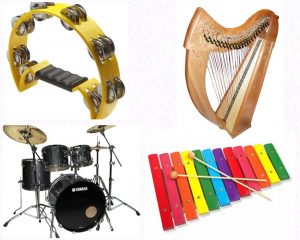What is Dementia?
Dementia is a serious loss of cognitive ability in a person. This can happen due to normal aging. This blog is about DIY Communication Helpers for Dementia.
Additionally, it may be the result of a brain lesion or injury. Further, resulting in long-term cognitive decline. Furthermore, dementia is common in the elderly, it can be seen in any stage of adult life.
Nature of Dementia:
Dementia is a non-specific illness. In other words, memory, attention, speech, and problem-solving are affected. The symptoms need to be seen for 6 months to be confirmed.
Diseases like Parkinson’s, Huntington’s, Alzheimer’s disease Creutzfeldt-Jakob disease Picks Disease,
Vascular Dementia, Frontotemporal Dementia (FTD), Dementia with Lewy bodies, Alcohol-induced persisting disorders causes dementia.
Cognitive stimulation and Dementia
- Fortunately, a growing body of evidence suggests that cognitive stimulation of the brain helps in declining the pace of progression of the condition.
- It also reduces the risk of development of Dementia in at-risk individuals.
- Mentally stimulating activities help the brain to create reserves of healthy brain cells and the connections between them. These healthy reserves further compensate for the functions of the damaged brain cells and help delay the disease progression.
Read a detail blog on Activities to improve cognitive skills in Dementia here
Dementia: Care-giving tips
Care-giving tips – Globally, there is a rise in the population of the elderly people with the generation of baby boomers having entered the age of 60 years. Old age is commonly associated with disorders such as high blood pressure and heart diseases. Along with this problem, it also leads to the slowing of the brain functions. Memory lapse is the most common brain dysfunction that people notice and are aware of.
Here are some tips to help communicate with people living with dementia.
1. Realise Your Challenge
Your parent or loved one will get worse with time. Communication will become more difficult. On the other hand, remember there will be good days and bad days. Be prepared. Care-giving tips
2. Be Patient
Communicating effectively is one of the greatest challenges seniors living with dementia face. Tolerate compassionately any delays, adversity or provocation.
3. Offer Reassurance
Listen attentively and empathize with their concerns even if they are delusional, confused, hesitating, or angry. Offer reassurance and support.
4. Minimize Background Noise
Noise can disturb and confuse people living with dementia. Find a quiet place to talk, away from the tv, radio, or people passing by.
5. Avoid Arguing
When talking, place yourself in front of them and speak in a clear and warm tone. Use simple sentences and give clients ample time to respond. Do not contradict what they are saying and don’t speak to them as you would to a young child.
Click here to read a detail article on Dementia: Care-giving tips
Communication Tips for Adults with Dementia
Communication difficulties in Dementia, Can you imagine being in a situation where you are not able to understand what others say and you cannot communicate what you want to say either?
How frustrating can it be to not find the right word when you want to express yourself or to suddenly forget what was being spoken?
Imagine living like this for the rest of your life. This is what persons with Dementia go through in their everyday life.
In the initial stages of the condition, the person may show difficulties such as having trouble finding the right words and may substitute a word with its related word (e.g. spoon for a fork). He may also speak very fluently in sentences with jumbled up words and meanings.
In the later stages, this becomes worse and he may end up repeating the same phrase or words multiple times. The person may also start to speak a lot of irrelevant things that may not make any sense at all. With further progression, it may lead to a stage where he no longer understands what others speak and is unable to respond verbally.
Factors to be considered while you speak to a person with Dementia:
- Try to use simple and short sentences as they are easier to process
- Speak slowly and clearly, giving enough pauses between the sentences to give them enough time to process and respond back
- Do not treat them and talk to them as you would do to a child, in a disrespectful manner. They can easily sense that and may feel hurt.
- Be careful of the tone of language that you use. Do not speak very loudly as they may mistake it as scolding and it can make them feel uncomfortable
- Try to carry out back and forth conversations on a topic and avoid asking back to back questions to them as they may feel you are interrogating them
- Focus on one particular topic at a time. Don’t shift the topic rapidly as they may find it difficult to process
- When the person does not seem to understand what you speak, try to break it down into smaller chunks of information and simplify it. You can also give additional cues through the non-verbal modes of communication such as by pointing at pictures or objects, showing gestures and facial expressions. (e.g. Pointing to the plate if you are talking about eating, showing a picture of the person you are talking about)
Here are some do it yourself (DIY) communication helpers for people with Dementia namely:
1.Creative Music:
Experimenting with music. In other words, if the person knows to play any musical instrument help them to use it. If not make the person create music and talk about it. 
2.Talking about old photos:
Talk about the old photos helps the person to recollect the names. This improves their social connections. Always address the name and the person’s relationship before describing the event related to the image.
3. Watching old Movies and Family DVDs:
Play old movies and family DVDs and help the person to build conversations. Additionally, talk topics related to the event.
4. Folding Clothes:
Folding clothes need sequencing and planning. Therefore, it is good to do the house chore and also helps to identify the person’s using the clothes.
5. Smelling and Finding Objects:
Smelling coffee, flowers, and spices give them memories. The person’s mood is set by smelling them. For eg: The coffee gives morning memories and the roses help in remembering tours in the garden etc.
View this post on Instagram




